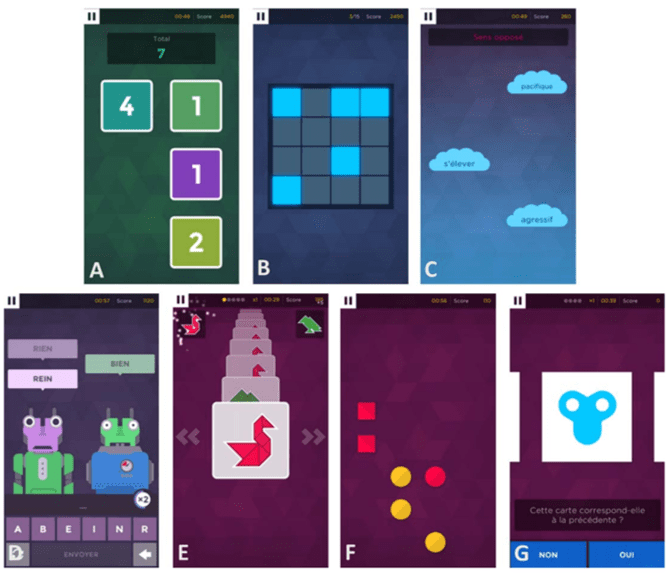
Individual Brain Charting: A high-resolution brain map of cognitive functions
https://www.humanbrainproject.eu/en/follow-hbp/news/individual-brain-charting-a-high-resolution-brain-map-of-cognitive-functions/
Sent from Flipboard




"When you turn your back on reality you lose the ability to manipulate reality. One would think that is self-evident. I didn't go into this to not try to find the truth." — James Flynn*
Today it is an honor to have Dr. James Flynn on the podcast. Dr. Flynn is Professor Emeritus at the University of Otago and recipient of the University's Gold Medal for Distinguished Career Research. In 2007, the International Society for Intelligence Research named him its Distinguished Contributor. His TED talk on cognitive and moral progress has received over 3.5 million visits. His long list of books include Are We Getting Smarter?, What is Intelligence?, Where Have All the Liberals Gone?, Fate and Philosophy, How to Improve Your Mind, and most recently, Does Your Family Make You Smarter?: Nature, Nurture, and Human Autonomy.
In this episode we cover a wide range of topics relating to intelligence and its determinants, including:
Links
Why our IQ levels are higher than our grandparents [TED Talk]
Reflection about intelligence over 40 years
Heritability Estimates Versus Large Environmental Effects": The IQ Paradox Resolved
IQ Bashing, Breadkdancing, the Flynn Effect, and Genes
Men, Women, and IQ: Setting the Record Straight
The Flynn Effect and IQ Disparities Among Races, Ethnicities, and Nations: Are There Common Links?
The Role of Luck in Life Success Is Far Greater Than We Realized
Twitter Q & A with James Flynn
Flynn: No, they would just be better adapted in their ability to meet educational demands.
Flynn: Whenever I catch them I am disturbed by both bad genetic hypotheses and bad environmental ones.
3. "What has caused the Flynn reversal in Nordic and some other rich countries? Markus Jokela suggested it could be health related." https://twitter.com/mark_ledwich/status/1027685177231695872
Flynn: See this article in Intelligence by myself and Shayer on IQ decline.
Flynn: Read good literature and stand out against the trend to read less and less (see Flynn, The Torchlight List and The New Torchlight List.
5. "Could the Flynn effect be based at least partially on a trade off, meaning that with change in culture promoting development of skills associated with higher IQ scores, this rise is at a cost of eg working memory?" https://twitter.com/Kapusta2365/status/1027689783219380225
Flynn: I don't think there is a downward trend in working memory – see Does Your Family Make You Smarter?
6. "Do the intelligence gains the Flynn effect reveals show an in increase in the g factor?" https://twitter.com/DabneyPierce/status/1027684042022432768
Flynn: No – see "Reflection about intelligence over 40 years" just posted on the net.
7. "What do you make of American SAT/ACT trends, that is the Asian scores increases and the Native-American scores declines?" https://twitter.com/UnsilencedSci/status/1027682180737130497
Flynn: Sorry I have only looked at black and white.
8. "Does you ever think there will come a time when rational, non-bigoted people can publicly discuss race and gender topics relating to your research?" https://twitter.com/AFIChai/status/1027732647349547009
Flynn: Well I hope so – but there is no trend in that direction.
—
* Quote taken from a lecture Flynn gave at the University of Cambridge on July 20, 2012.
Dr. Stuart Ritchie on Intelligence, IQ Testing and GeneticsMay 3, 2016In "intelligence"
The Latest Science of Attachment with R. Chris FraleyJuly 5, 2017With 2 comments
Straight Talk about IQ with Christopher ChabrisJune 8, 2015In "intelligence"




___
The Use of Mobile Games to Assess Cognitive Function of Elderly with and without Cognitive Impairment (Journal of Alzheimer's Disease):
Abstract: In the past few years numerous mobile games have been developed to train the brain. There is a lack of information about the relation between the scores obtained in these games and the cognitive abilities of the patients. The aim of this study was to determine whether or not mobile games can be used to assess cognitive abilities of elderly. Twenty healthy young adults, 29 old patients with cognitive impairments (Mini-Mental State Exam (MMSE) [20- 24]) and 27-aged controls participated in this study. Scores obtained in 7 mobile games were correlated with MMSE and the Addenbrooke's Cognitive Evaluation revised (ACE-R). Statistically significant differences were found for all games between patients with cognitive impairments and the aged controls. Correlations between the average scores of the games and the MMSE and ACE-R are significant (R = 0.72 [p < 0.001] and R = 0.81 [p < 0.001], respectively). Scores of cognitive mobile games could be used as an alternative to MMSE and ACE-R to evaluate cognitive function of aged people with and without cognitive impairment at least when MMSE is higher than 20/30.